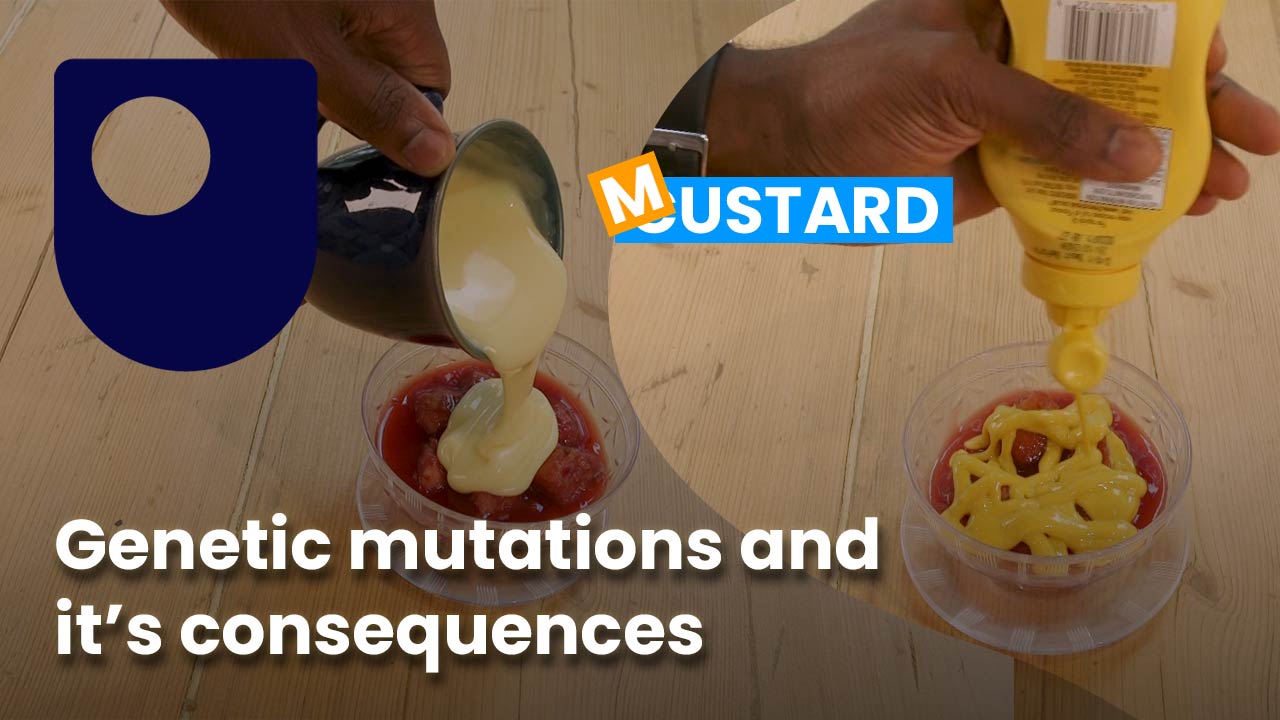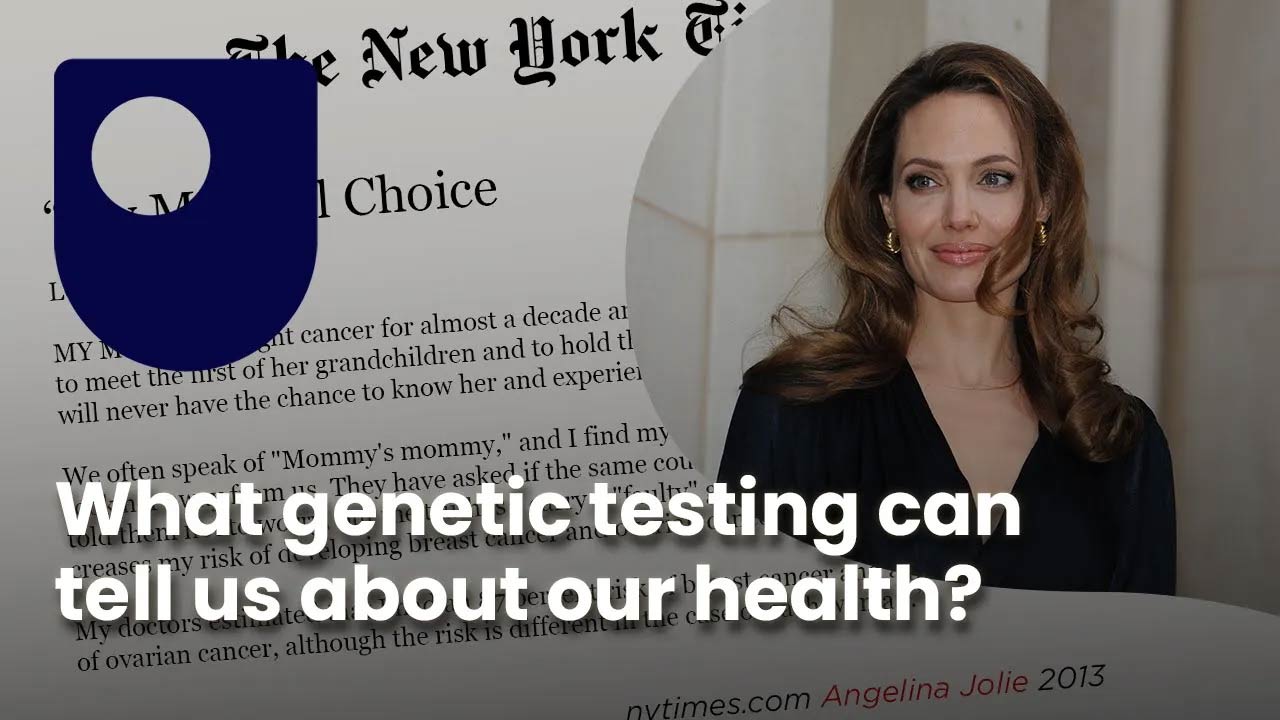Transcript
(69.6 KB)
Have you ever heard of direct-to-consumer, or DTC, genetic tests? These tests can be bought and carried out at home, just by spitting in a tube. DTC genetic tests often promise to reveal things about our health, heritage, and unique traits that are hidden in our DNA. In this video, we ask: what can these tests really tell us?
DTC ancestry tests can give people information about their ethnic background and family history by comparing their DNA to others from around the world. This information isn’t always accurate, and the tests can struggle to give precise details about exactly where someone’s ancestors came from. Ancestry tests may also reveal family secrets that are upsetting to the person taking the test and their family, like a child finding out their father isn’t biologically related to them.
Many DTC tests say they can predict someone’s traits just by looking at their DNA. This works well for simple traits which have a strong genetic basis, like eye colour. But other traits, like preferring chocolate over vanilla ice cream, depend on lots of genetic changes and environmental factors that the tests miss out, and so the results are likely to be inaccurate.
DTC tests can also tell us things about our health by checking our DNA for changes which increase our risk of certain diseases, like Alzheimer’s disease. Again, these health predictions don’t often give us the full picture, as they only check for a few DNA changes affecting health while missing out many others, and they ignore important lifestyle and environmental factors.
We also look at various limitations and caveats, such as how DTC genetic testing compares to genetic testing ordered by your doctor, why DTC genetic tests may be less accurate for people of non-European ancestry, and what you should know about data privacy.
Visit our YouTube playlist to watch more videos from the GRACE project, or visit our website to find out more about the project.
Watch the other videos in this series
-
Introducing the GRACE project – your community and genetics research
Watch now to access more details of Introducing the GRACE project – your community and genetics researchIt’s an exciting time in the field of genetics research. Groundbreaking discoveries are being made, which help us to better understand ourselves and improve our healthcare. But does genetics research represent and benefit us all equally?

Video
Level: 1 Introductory
-
What is genetics? And how can it affect our health?
Watch now to access more details of What is genetics? And how can it affect our health?We all have roughly the same genes, with more than 99% of our DNA shared in common with any other person. But the less than 1% difference in our genomes makes each of us genetically unique.

Video
Level: 1 Introductory
-
Medical uses of genetic testing
Watch now to access more details of Medical uses of genetic testingGenetic testing can diagnose disorders, predict health risks, and assess the likelihood of passing conditions to offspring. This helps people make informed health decisions and offers the chance for early screening and interventions.

Video
Level: 1 Introductory
-
Further uses of genetic testing
Watch now to access more details of Further uses of genetic testingGenetic testing is a valuable tool for understanding many important things about ourselves, from our characteristics to our heritage and identity.

Video
Level: 1 Introductory
-
Accessing genetic testing through the NHS
Watch now to access more details of Accessing genetic testing through the NHSFind out how to access free genetic testing for personalised healthcare through the NHS, what the process involves, and how your results can support diagnosis and treatment.
.jpg)
Video
Level: 1 Introductory
-
Guide to engaging with the Gypsy, Roma and Traveller community
Watch now to access more details of Guide to engaging with the Gypsy, Roma and Traveller communityThe GRACE Project is shedding light on genetics and health within the Gypsy, Roma and Traveller community. Through research, dialogue, and storytelling, it aims to empower communities, tackle health inequalities, and spark conversation about the role of genetics in everyday life.

Video
Level: 1 Introductory
Learn more about genetics
-
What do genes do?
Learn more to access more details of What do genes do?This free course, What do genes do?, explores how information contained in DNA is used, explaining the flow of information from DNA to RNA to protein. Also introduced are the concepts of transcription (as occurs between DNA and RNA) and translation.

-
Gene testing
Learn more to access more details of Gene testingThis free course, Gene testing, looks at three different uses of genetic testing: pre-natal diagnosis, childhood testing and adult testing. Such tests provide genetic information in the form of a predictive diagnosis, and as such are described as predictive tests. Pre-natal diagnosis uses techniques such as amniocentesis to test fetuses in the ...

-
Inheritance of characters
Learn more to access more details of Inheritance of charactersGenes are units of inheritance that contribute to a person's behaviour and health. In this free course, Inheritance of characters, you will learn what genes, DNA and chromosomes are and how they combine to make the human genome. You will also learn how the principles of inheritance work, the effect that our genetic make-up has on health, and how...

Rate and Review
Rate this video
Review this video
Log into OpenLearn to leave reviews and join in the conversation.
Video reviews
I do hope it improves so it becomes accurate and trustworthy :)
My problem though, is the background music which for me is as an autistic is not background but intrusive and frankly annoying. This applies to all the videos I've watched and I wonder why, in an effort for inclusivity the music cannot be muted, leaving just the verbal content. Yes, I know I can download the transcript but would prefer not to, and enjoy the efforts of the tutors.